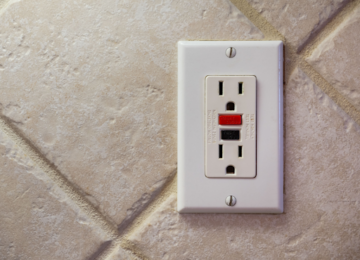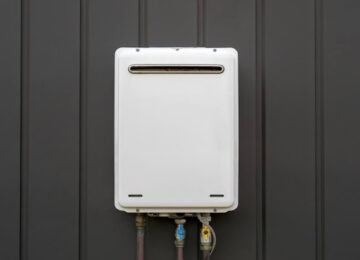Do you have a natural gas furnace, stove, or any gas appliances in your home? If so, it’s crucial to know how to detect a gas leak to prevent a dangerous explosion.
 In February 2019, a natural gas leak in a home in Ontario, Canada, caused a massive explosion that rocked an entire neighborhood. The blast completely leveled the house, leaving a flat pile of rubble. Twenty surrounding homes were damaged, with the nearest four sustaining heavy structural damage. Tragically, one person lost their life.
In February 2019, a natural gas leak in a home in Ontario, Canada, caused a massive explosion that rocked an entire neighborhood. The blast completely leveled the house, leaving a flat pile of rubble. Twenty surrounding homes were damaged, with the nearest four sustaining heavy structural damage. Tragically, one person lost their life.
While house explosions are rare, knowing how to detect a gas leak is essential. You can rely on your senses—your nose, eyes, and ears—to help identify one early.
Use Your Nose
Natural gas is naturally odorless, but gas utilities add a distinctive odor to help detect leaks. A sulfuric, rotten egg smell is the clearest sign of a gas leak, which could be coming from your stove, water heater, or furnace.
Use Your Ears
If gas is leaking from a pipe, appliance, or behind a wall, you may hear a hissing or whistling noise. This sound can also come from a loose connection. The louder the whistling, the more significant the leak.
Use Your Eyes
Check for damaged or loose connections—if something doesn’t look right, call your gas utility.
For gas stoves, the flame should burn blue. If it appears more orange or yellow, the burner isn’t getting enough oxygen, meaning the natural gas isn’t fully combusting. It’s fine if the flame starts yellowish-orange, as long as it turns blue. If not, turn off the burners.
Wilting or yellowing houseplants, especially near a gas fireplace or appliance, may signal a gas leak, as natural gas can prevent plants from absorbing carbon dioxide. Similarly, dead patches of grass in your yard could indicate an underground gas leak.

If You Suspect a Natural Gas Leak
Do you suspect a natural gas leak? Take it seriously and follow these steps immediately:
- Stay calm and act quickly—leave your home and go outside.
- Shut off the main gas valve if you know how.
- Open windows as you leave.
- Once you’re safely outside, call your gas utility immediately.
Conclusion
If you suspect a natural gas leak, always call your gas utility first. Once the emergency is resolved and the gas is shut off, you can contact Handyside to repair the leak.
![Watch Out For These Gas Leak Warning Signs Do you have a natural gas furnace, stove, or any gas appliances in your home? If so, it’s crucial to know how to detect a gas leak to prevent a dangerous explosion. In February 2019, a natural gas leak in a home in Ontario, Canada, caused a massive explosion that rocked an entire neighborhood. The […]](https://handysideinc.com/wp-content/uploads/2024/09/Warning-Signs-Of-A-Gas-Leak-750x420.jpg)



